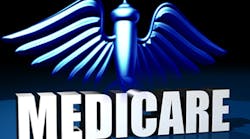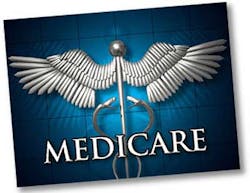There has been an additional delay with regards to the “enforcement date” for MedicarePart D prescriber enrollment, according to the Centers for Medicare & Medicaid Services and its Center for Program Integrity. The enforcement date has been pushed back to June 1, 2016, from the most recent delayed enforcement date of January 1, 2016.
According to CMS, this decision is based on the analysis of Part D prescriber enrollment trends, as well as concerns expressed by Part D sponsors and pharmacy benefits managers (PBMs) and their ability to comply in time with the required system updates surrounding prescriber enrollment. These system-wide changes were outlined in May 2015 as a part of the interim final rule with comment (ICF).
Even though the enforcement date has changed and providers may wonder if enforcement will ever really happen, CMS strongly encourages “prescribers of Part D drugs (except those who meet the definition of ‘other authorized prescribers’) to submit their Medicare enrollment applications or opt out affidavits to their Medicare Administrative Contractors (MACs) before January 1, 2016. This should provide the MACs with sufficient time to process the prescriber’s applications or opt out affidavits and thus prevent prescription drug claims from being denied by Part D plans beginning June 1, 2016.”1
Please keep in mind that if you provide potentially covered services for Medicare Part B beneficiaries outside of writing prescriptions, and you have not yet decided about enrollment or opting out of Medicare, you still need to make a decision. Those who are providing services and have done nothing may be required to enroll as Part B providers and bill those services on behalf of the Medicare beneficiary. Some providers are not aware that Medicare may cover some dental services (i.e., biopsies, dental splints as a result of jaw surgery, dental services necessary due to oral cancer, sleep apnea, etc.). If potentially covered services are provided and you are not enrolled as a provider for Medicare or have opted out of Medicare, CMS may require you to enroll and bill these services on behalf of the Medicare beneficiary after the fact. If an Advanced Beneficiary Notice (ABN) wasn’t given to the patient prior to treatment, and submission of the claim to Medicare and the services are denied, Medicare can make the provider write off the services.
As of today, if a non-enrolled provider (i.e., dentist) is referring or ordering services for his or her patients to a provider that is enrolled in Medicare and bills for services, the first provider is putting the Medicare provider at risk of being denied reimbursement from Medicare. For example, if a non-enrolled dentist performs a biopsy and sends the specimen to a pathologist who is enrolled, the pathologist will not be paid.
I’ve received emails from offices that have received letters from local laboratories asking them to enroll at a minimum as an ordering/referring provider only for Medicare. The labs are concerned with this because they’re being denied payment from Medicare based on the referring provider not having some type of enrollment status with Medicare.
If you have already enrolled in or opted out of Medicare, you’re ahead of the game when it comes to enforcement. If you have yet to make a decision, Medicare encourages offices to not delay as enforcement is still coming.
Maria Tatman, CPC, is with Terri Bradley and Associates. ©Terri Bradley, LLC







